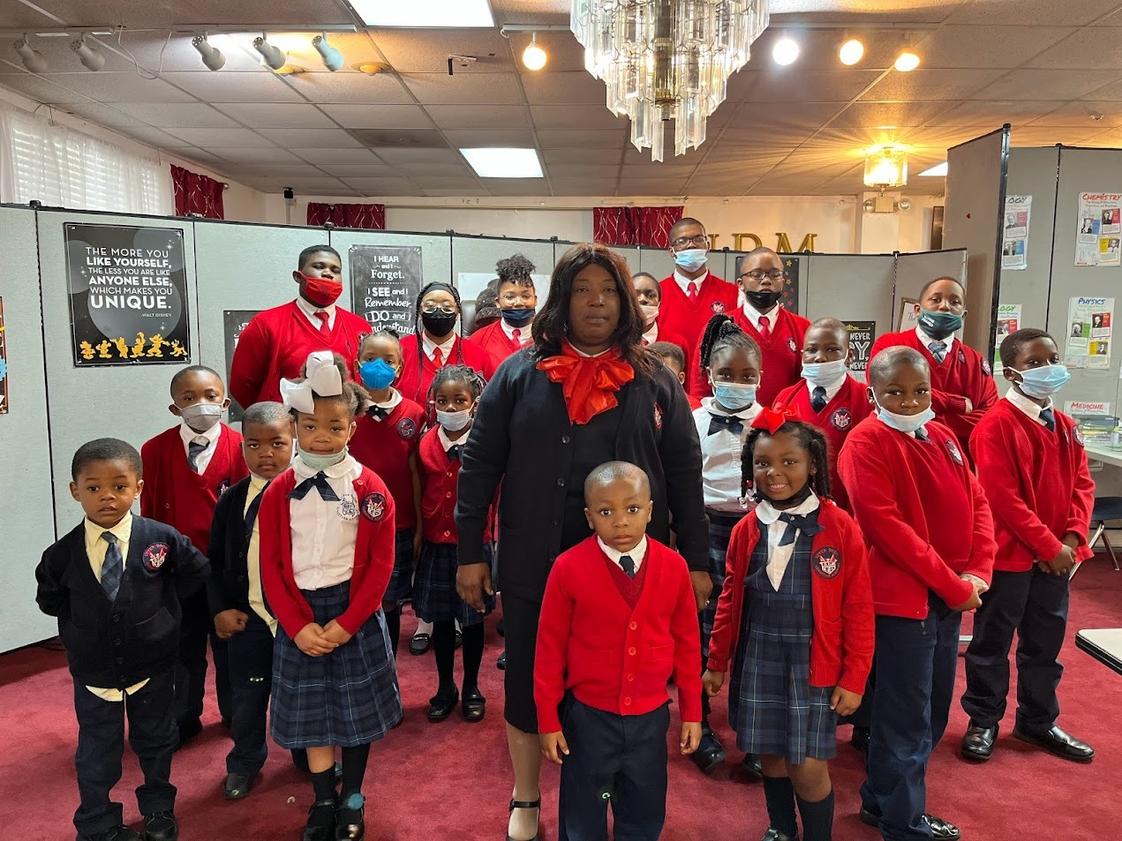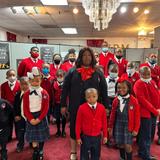For the 2025 school year, there are 5 private high schools serving 197 students in Clayton County, GA.
The top ranked private high school in Clayton County, GA is Upper Room Ministries Christian Academy.
The average acceptance rate is 75%, which is lower than the Georgia private high school average acceptance rate of 78%.
80% of private high schools in Clayton County, GA are religiously affiliated (most commonly Christian and Seventh Day Adventist).
Top Ranked Clayton County Private High Schools (2025)
School
Location
Grades
Students
587 Garden Walk Blvd
Atlanta, GA 30349
(770) 997-2506
Atlanta, GA 30349
(770) 997-2506
Grades: PK-12
| 56 students
Atlanta Adventist International School
(Seventh Day Adventist)
9940 Dixon Industrial Blvd
Jonesboro, GA 30236
(678) 545-3656
Jonesboro, GA 30236
(678) 545-3656
Grades: K-9
| 37 students
Evangel Temple Christian Academy
Alternative School (Christian)
2230 Rex Rd
Morrow, GA 30260
(404) 366-2331
Morrow, GA 30260
(404) 366-2331
Grades: K-12
| 20 students
New Faith Christian Academy
(Christian)
260 Forest Parkway
Forest Park, GA 30297
(678) 789-5185
Forest Park, GA 30297
(678) 789-5185
Grades: 6-12
| 77 students
Clayton County Private Schools (Closed)
School
Location
Grades
Students
5881 Phillips Dr
Forest Park, GA 30297
(770) 961-2042
Forest Park, GA 30297
(770) 961-2042
Grades: 2-9
| 27 students
7102 Mount Zion Blvd
Jonesboro, GA 30236
(770) 478-9842
Jonesboro, GA 30236
(770) 478-9842
Grades: PK-12
| 438 students
Rising Son Academy (Closed 2015)
(Pentecostal)
5880 Old Dixie Hwy
Forest Park, GA 30297
(404) 361-0812
Forest Park, GA 30297
(404) 361-0812
Grades: NS-6
| 60 students
Frequently Asked Questions
What are the top ranked private high schools in Clayton County, GA?
The top ranked private high schools in Clayton County, GA is Upper Room Ministries Christian Academy.
How many private high schools are located in Clayton County?
5 private high schools are located in Clayton County.
How diverse are private high schools in Clayton County?
Clayton County private high schools are approximately 99% minority students, which is higher than the Georgia private school average of 22%.
What percentage of private high schools are religiously affiliated in Clayton County?
80% of private high schools in Clayton County are religiously affiliated (most commonly Christian and Seventh Day Adventist).
Which private high schools in Clayton County are often viewed compared to one another?
Popular comparisons of private high schools in Clayton County include: New Faith Christian Academy vs. Evangel Temple Christian Academy
Recent Articles

A Parent's Guide To Understanding High School Teaching Methods
This comprehensive guide helps parents navigate the various teaching methods used in today's high school classrooms. By understanding these approaches, you'll be better equipped to support your teen's learning journey, communicate effectively with teachers, and create a complementary learning environment at home.

February 08, 2025
Social Emotional Learning: Education's Hidden SymphonyA musician's perspective on Social Emotional Learning reveals how this educational framework orchestrates success through five essential emotional competencies.

January 24, 2025
A Roadmap For Starting A Private SchoolUse this roadmap as a set of talking points with your trusted mentors and professionals to start the private school of your dreams. You're not alone. Over the years, hundreds of folks like you have had the same dream. From Quintilian to Maria Montessori to Lucy Madeira Wing, visionary educators have established schools to teach according to their beliefs and methodologies.


















